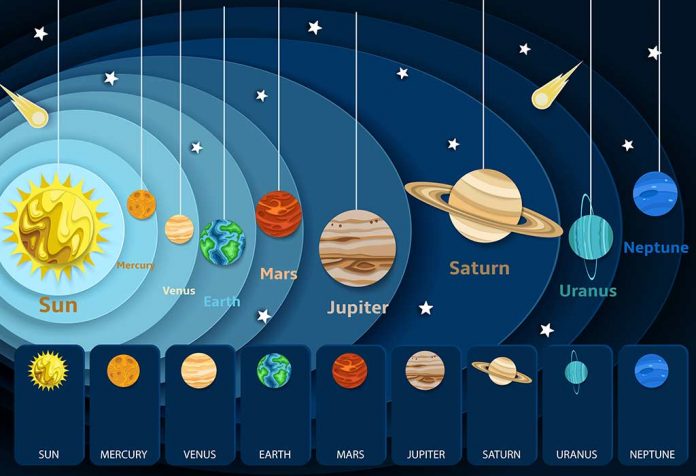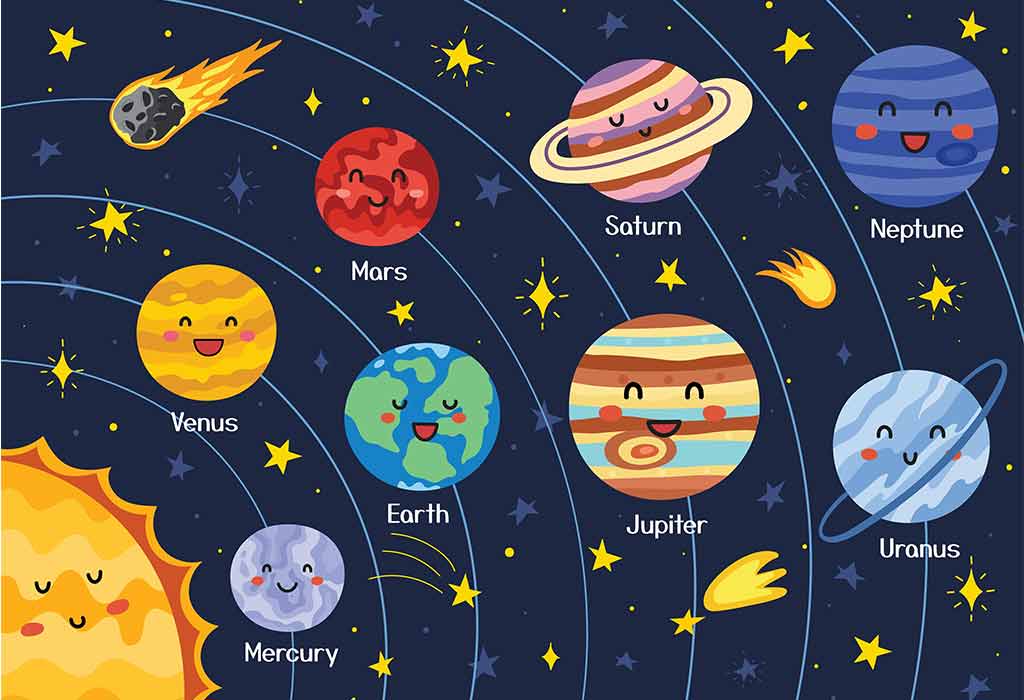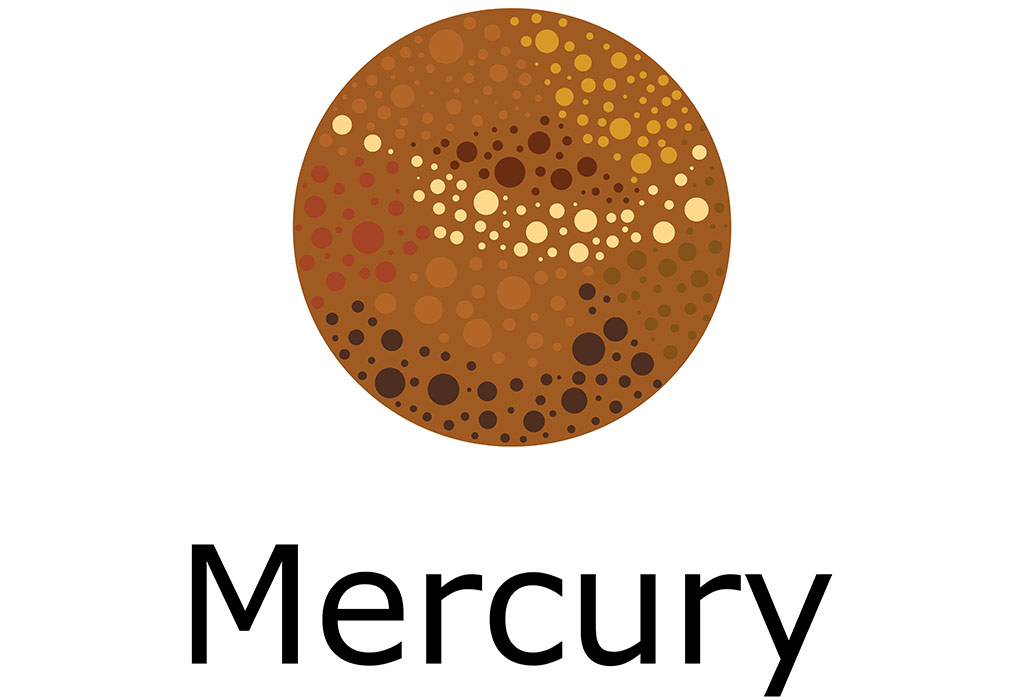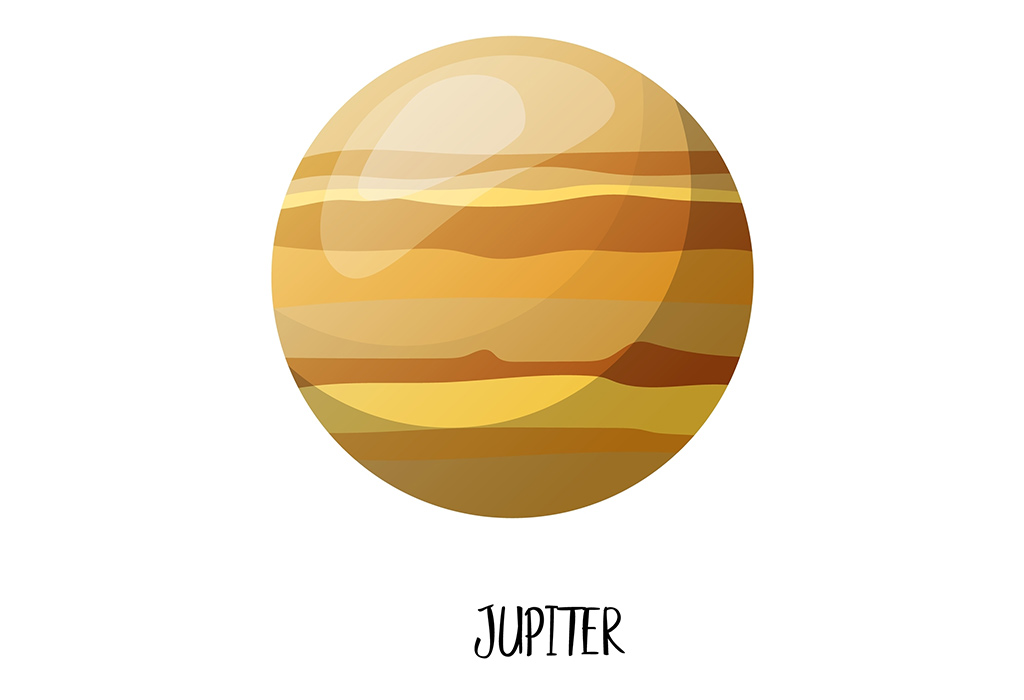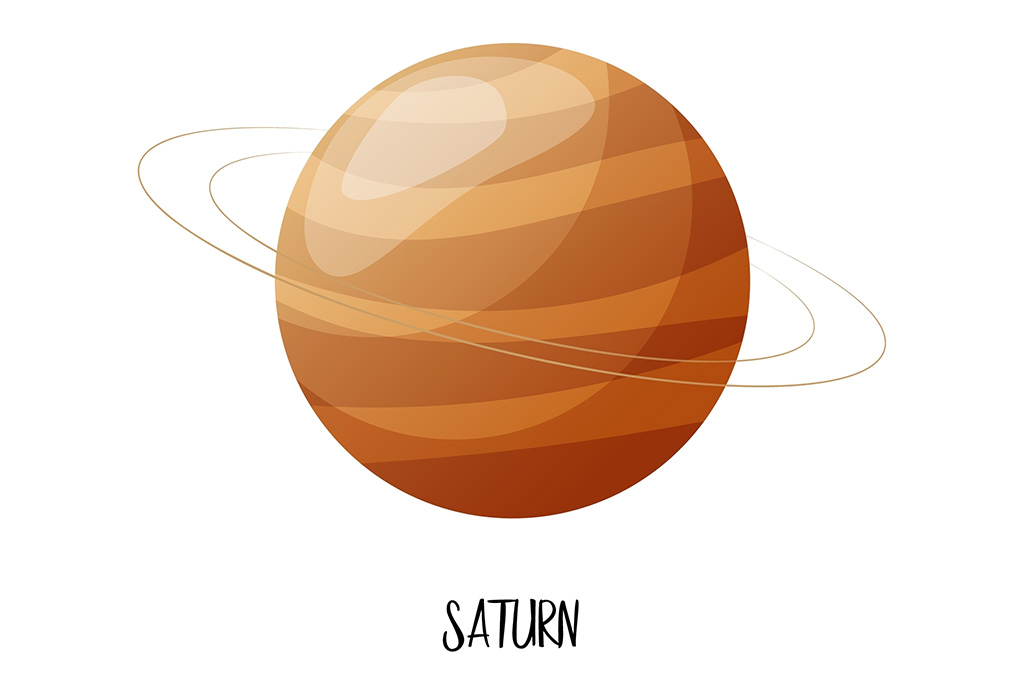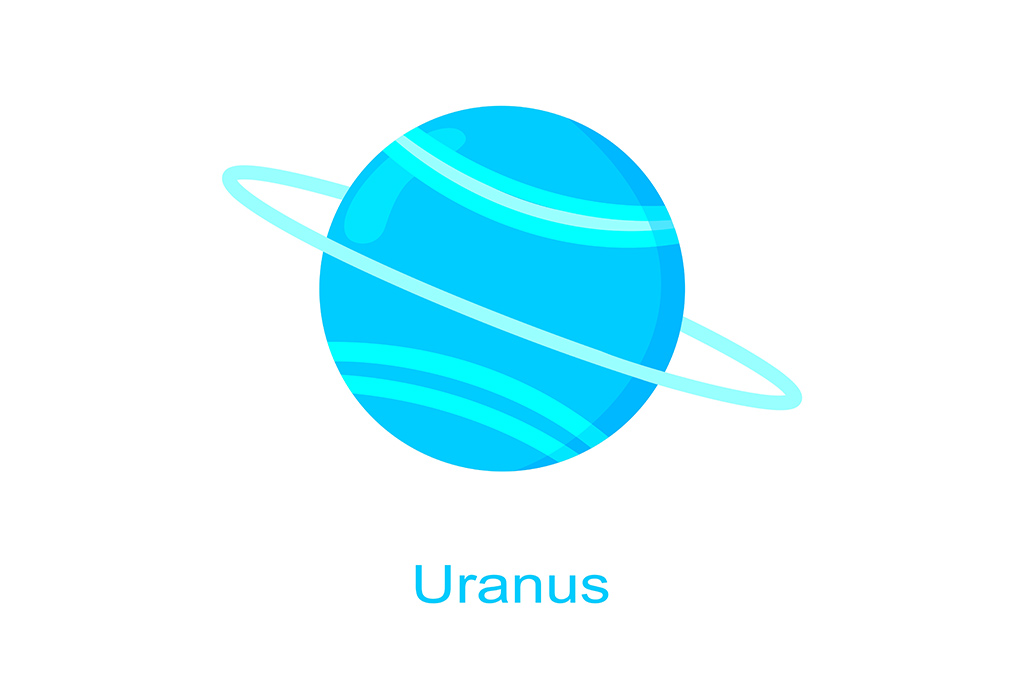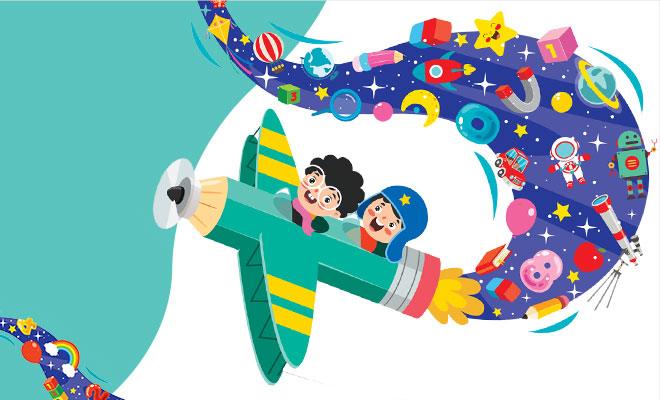Are you confused about how to talk about planets with your child? We know it is a difficult topic for parents to teach and children to comprehend. But teaching kids the planets’ names in English at a young age can academically benefit children and can also inspire astronomy as a passion, ignite imaginations and encourage a long-term fascination with outer space.
Children are already fascinated with space, especially with moon and stars, as they are sung poems like “twinkle-twinkle little star”. But they must also be taught space vocabulary other than stars and moon.
Below we have covered some important questions related to the solar system, which includes information about planets that you must teach your little one. We have also mentioned some easy and simple-to-understand activities which will be helpful when teaching your child about planets.
What Is Our Solar System?
You will be surprised to know that the solar system got its name all thanks to the big star Sun. In Latin, Sun means Sol. The universe comprises planets, moons, asteroids, comets, stars and more things that are not yet discovered. All these elements together are called a system. Thus, solar system. According to scientists, the solar system was formed more than four billion years ago, after the Big Bang.
What Is A Planet?
Planets are large natural objects that orbit around Sun in space. There are a total of eight planets in our solar system, along with other small tiny planets. Most of the planets orbit the Sun in a path shaped like a circle. Planets also have a layer of gases surrounding them, and most of the planets have at least one moon.
Scientists spent a lot of time figuring out the definition of a planet. In 2006, they came up with this definition – they said a planet must do three things:
- It must orbit around the Sun.
- It should be big enough to have enough gravity to force it into a spherical shape.
- It should be big enough that its gravity cleared away any other objects of similar size near its orbit around the Sun.
Why It Is Important For Kids To Know About Planets?
Learning about planets can be exciting as well as confusing. Planetary science, the study of planets, is one of the fastest-growing areas of scientific research. Therefore, children must know about planets. Following are some reasons why we should teach our little ones about planets.
- It will help them to appreciate the planet we live on, Earth.
- It gives them incentives to preserve and respect natural resources.
- It will help them to understand important topics like global warming.
- It will help them discover information and fascinating facts about different planets.
List Of Planets In Our Solar System
Learning the inner planets and outer planets’ names can be fun for children. Below we have covered all the planet’s names that you can teach your child. Let’s look at them.
1. Mercury
The first planet, Mercury, is the closest planet to the Sun.
2. Venus
The planet Venus is similar in size to Earth.
3. Earth
Earth is the planet we live on.
4. Mars
Mars, or the Red Planet, is the fourth planet from the Sun.
5. Jupiter
The fifth planet, Jupiter, is the biggest planet in our solar system.
6. Saturn
The planet Saturn is surrounded by a system of rings.
7. Uranus
The planet Uranus rolls rather than spins.
8. Neptune
The planet Neptune is the furthest from the Sun.
Other Vocabulary About Space And Universe
Space, or our universe, is not just limited to Sun, moons, stars and planets. There are other things as well that are present in our universe. Some of these are also man-made, like an artificial satellites. Let’s have a look at some vocabulary about space and the universe.
| Moon | Satellites | Astronaut |
| Sky | Sun | Asteroids |
| Asteroid Belt | Atmosphere | Black Hole |
| Cosmology | Milky Way | Eclipse |
| Orbit | Comet | Shooting Star |
| Dwarf Planets | Spacecraft | Light Year |
| Space Shuttle | Galaxy | Space Station |
| Telescope | Equator | Constellation |
| Crater | Hemisphere | Nebula |
| Flares | Cosmic Dust | Meteor |
| Starburst | Rocket | Space Suit |
Activities That Will Help Your Child To Learn/Remember Planet Names
1. Teach With Flashcards
Take a print of planets and paste them on flashcards. Show each planet one by one to your child and tell them the name of the planets. After some time, quiz your little one by showing them the planet flashcards and asking them the name of each planet.
2. Draw A Planet
All children love to draw and colour. So, why not make their drawing time learning time as well? Show your child the images of planets in a book or on the phone and ask them to draw the same and colour it.
3. Teach With A Poem
We all love singing nursery rhymes. They are entertaining and easy to remember. Below we have mentioned a rhyme related to planets that you can use to teach your child.
Planet Roll Call
Eight planets around the Sun,
Listen as I call each one:
Mercury? Here! Number one,
Closest planet to the Sun.
Venus? Here! Number two,
Shining bright, just like new!
Earth? Here! Number three,
Earth is home to you and me.
Mars? Here! Number four,
Red and ready to explore!
Jupiter? Here! Number five,
Largest planet, that’s no jive.
Saturn? Here! Number six,
With rings of dust and ice that mix.
Uranus? Here! Number seven,
A planet tilted high in heaven.
Neptune? Here! Number eight,
With one dark spot whose size is great.
4. Name The Next Planet
This is a great game to teach your child about the order of planets. First, tell them the name of all planets in order. Next, say the name of any planet and your child have to tell the name of the planet that comes after that planet. For example, if you will Earth, your child has to say, Mars.
Interesting Facts About Planets For Kids
Now that your child knows all 8 planets’ names, it’s time to tell them some interesting facts related to these planets.
- Jupiter is the biggest planet, and Mercury is the smallest.
- The Earth rotates as it orbits the Sun. One day = One complete rotation. It takes 365 rotations to complete a whole year.
- The ring particles of Saturn are made almost entirely of water ice particles.
- Before humans explored the Earth, everyone thought it was flat. But all planets in the Solar System are shaped like balls.
- Each planet has different characteristics. Earth is made up of rock, but Jupiter is made from gas!
- Venus is the hottest planet, with an average temperature of 460°C.
- Uranus is the coldest planet. It has an average temperature of -220°C.
- The planet Earth is the only one that we know of that has living creatures on it – although we’re still searching for life on other planets!
- All the planets are named after Roman and Greek Gods/Goddesses, with the exception of Earth – meaning ‘ground’ in old Germanic English.
- Mercury is a bright planet, and it can be seen from Earth without a telescope.
- Mercury and Venus are the only two planets in our solar system without any moons.
- The planet Venus can be seen with the naked eye from Earth without a telescope.
- Pluto was considered the 9th planet of the Solar System, until it was discovered in 2006 that it has become gravitationally dominant, and is now known as a dwarf planet. So now, the Solar System has only 8 planets.
We hope you enjoyed learning about the planets in our solar system. After learning new words about the universe and space, children can start their own journey of discovery!
Also Read:
Shape Names for Kids
Season of the Year for Children
Fruit Names in English for Kids



